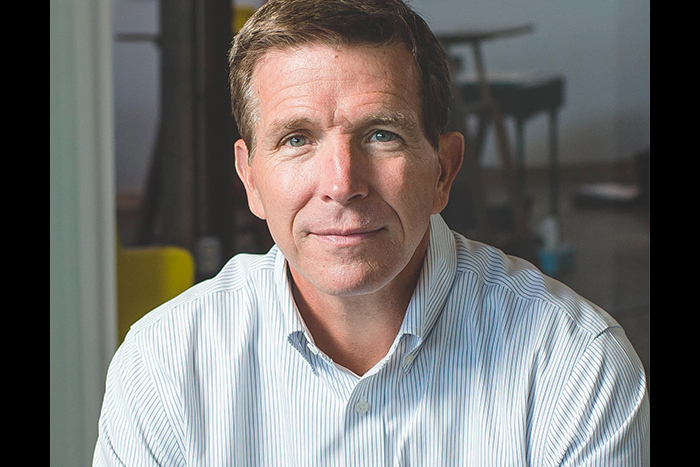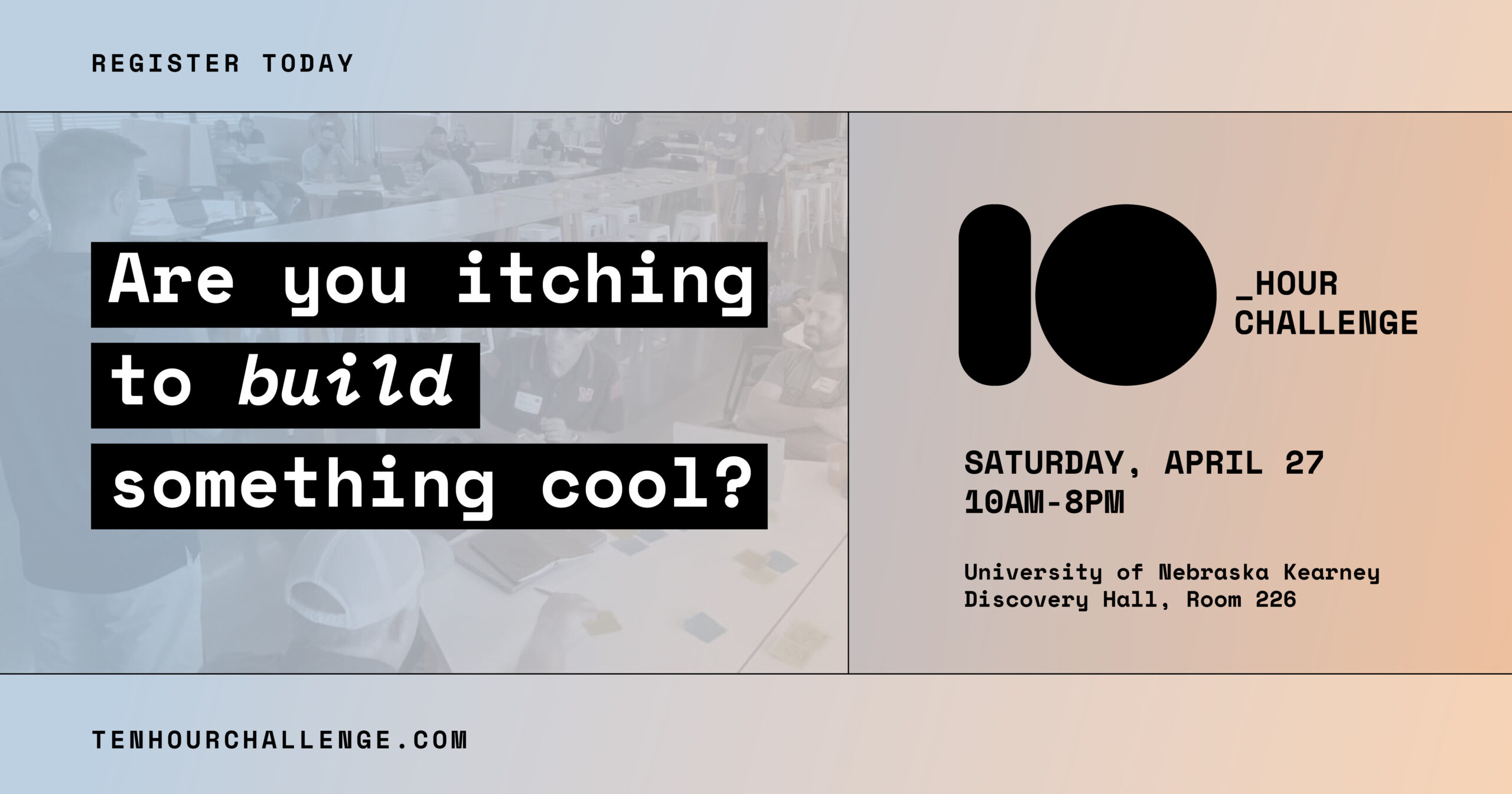
Mark Hasebroock is the founder of Omaha-based Dundee Venture Capital, which announced today their new $20 million Fund III, focusing on e-commerce, B2B SaaS and consumer-network startups. They also announced a strategic partnership with Lakewest Venture Partners in Chicago. SPN caught up with Hasebroock over the phone.
SPN: The big news last week was EyeVerify’s acqusition by Ant Financial. What do you see as its impact across the region?
MH: I’ve already heard from friends in New York who are part of larger funds who have said, “Hey, what’s going on out there?” They’re sitting up a little straighter, taking notice of an event like this. It’s significant from the standpoint that it gives some legitimacy—these aren’t just hobby companies that people are building. These are real, legitimate technologies growing here in the heartland.
The other side of the coin is that typically something like this is going to free up the people involved with that company to think about their next venture. Like the PayPal mafia, anybody that was involved with eBay in the early days, hundreds of them turned around and started other companies. Whether its through angel investing or starting their next deal, it’s a significant liquidity event for this region.
It comes back to the whole thesis of why we exist: You can do so much more in the Midwest with not much capital. I think it’s going to create a tidal wave of creativity and innovation that is really important for us.
SPN: Your new fund is 65% larger than your previous one. There’s been a lot of news lately with John Fein starting Firebrand Ventures in Kansas City and Lewis & Clark with a new $20 million fund for Ag Tech in St. Louis. Are you seeing more venture capital opening up across the region?
MH: Absolutely. There’s more in pockets, and we need a lot more, of course. I think it’s a result of people realizing that in the Midwest valuations are pretty reasonable. They don’t experience the bucking bronco of either coasts of expectations on value.
You can do so much more out here with much less. The companies that are being built are real businesses that are founders with their heads down, trying to generate cash flow. And the runway with the capital they need is a lot longer.
SPN: One of the things people talk about, particularly in Omaha, is that we have a very generous community when it comes to philanthropy, but a very conservative community when it comes to investing. What can you say about venture investing as it relates to community building?
MH: Well, I think the dollar goes a lot further. By creating businesses, particularly technology companies, that’s the backbone of any community. I think if you don’t do that, you’re missing it. The opportunity is there, it’s just the evangelizing and education that needs to happen.
Historically, we’ve got a very conservative environment where when you say “startup” people’s ears pin back and they sort of slouch like, “I’m going to lose all my money.” But if you think about all the original startups that grew Omaha into what it is, they weren’t big established companies when they started.
Understanding how that fits into the fabric of what we want Omaha to be in the next 25 years is critical. It really does attract, retain and grow your community. For me there’s no greater philanthropic benefit than providing the opportunity for somebody to build a technology company here.
SPN: As you’ve traveled across the region, what’s one community that you see as a model startup community and what can the rest of the region learn from them?
MH: I think, originally, you look at Boulder, Colorado. Here’s a community of 100,000 people. The one thing they did very, very well is include everyone. They planted the flag and said, “We’re going to be a startup community.” But it starts from the ground up, not the top down. Anyone and everyone was welcome to contribute and participate, including the university system. And they realized that some people are going to fail, and not hiding from that.
That, to me, was really the model that I believe grew into our communities. So today in Chicago there’s a great model for how to do this on a much larger scale. In the last three years nearly a 1,000 companies have been created in one pretty dense area at the Merchandise Mart. And it’s again: Let’s include everyone. Let’s support everyone. Let’s recognize failure. And support the successes. And let’s keep doing it.
SPN: Often within the region there can be this Omaha vs. Kansas City vs. Des Moines vs. St. Louis rivalry. As someone who travels a lot across the region, where do you see the region working well together?
MH: I think you’re always going to have that silo mentality, “This is our city, and nobody’s going to take this from us.” But what I see happening is entrepreneurs across the region—and I see the region as Chicago to Austin, Boulder to Des Moines—entrepreneurs and the capital that supports them really don’t care about that stuff. I’ve seen in the last five years a dissolving of those boundaries.
Since last May we’ve seen 750 business ideas—and these are all relatively legitimate business ideas—and they’ve all come to us from other regions, from other funds, people we know, because they say, “Look, what you guys are doing is important. We want to work with you to help grow these companies so let’s do this together.” I don’t think you would’ve seen that five years ago.
SPN: Your background is in e-commerce. Your recent investment in Fooji and the acquisition of Cosmic Cart by PopSugar seem to highlight the ways in which e-commerce is changing. Where do you see the horizon for e-commerce in the next few years?
MH: I think it’s a race for second place. Amazon has won, there’s no doubt about it. When it comes to traditional e-commerce transactions, I haven’t seen any unique innovations. It’s been incremental improvements. For the traditional dropship company, I just don’t see how anyone makes any money anymore.
SPN: Do you see Hayneedle being acquired by Jet and Jet being acquired by Walmart within this year part of that trend?
MH: Yeah, I think so. To me it’s a little bit of recognition from Walmart saying, “OK, we’re in the race for No. 2, and it better be us. And we just don’t have that technology so let’s acquire it.”
And that’s what I see happening with a lot of these acquisitions that just don’t make the headlines. A lot of these startup companies, particularly out here, are the R&D for a lot of these businesses. Entrenched legacy companies clearly can’t create these things.
SPN: It’s been well over a year now since we started talking about a big correction in venture capital nationwide. Where are we now and where does our region fit into the national landscape?
MH: In the Midwest, there’s certainly a bubble, but it’s a protective bubble. We don’t have the ups and downs and wild gyrations that the coasts seem to have. We haven’t seen much of a change in pre-money values.
I know this is going to sound trite, but founders out here in the Midwest are very common sense. The expectations on those early investment rounds are not completely wild and crazy like they are elsewhere.
SPN: You’ve invested in over 30 companies now. What are you looking for and listening for when you meet with founders?
MH: The first thing we always look at are the founders, and typically it’s plural. A single founder company is pretty difficult to get off the ground. If there are two founders, [we like to see] one technical co-founder and one sales co-founder. Because typically when you hear a pitch it’s a technical solution to problem, and it’s unique and interesting. Then you walk through, “How do you sell this? Who’s buying this? What’s your sales cycle?” And they might say, “Well, we put the site up, and the world finds us, and we’re successful.”
But everything centers around selling something to somebody. So number one, when we have that combination of good tech and good sales founding, that’s interesting to us.
Number two, is it a problem that is personal to them? Is it something that has been nagging at the founders and then they finally decided to solve the problem themselves? You always hear, “You’ve got to have passion.” Well, a lot of that stems from something that is a real pain to somebody—and they are not going to stop until it’s solved.
And then, is it a big enough problem and a big enough market for people to care? There are some great ideas that could be really nice lifestyle businesses that just don’t need venture funding. There’s nothing against creating a business that can sustain your family for a long time.
Frequently, people tell founders, “Just bootstrap this. You do not need nor should you want venture funding.” We look for the ones that can really scale and scale quickly—5-10% growth per month, sometimes 20% growth per month.




